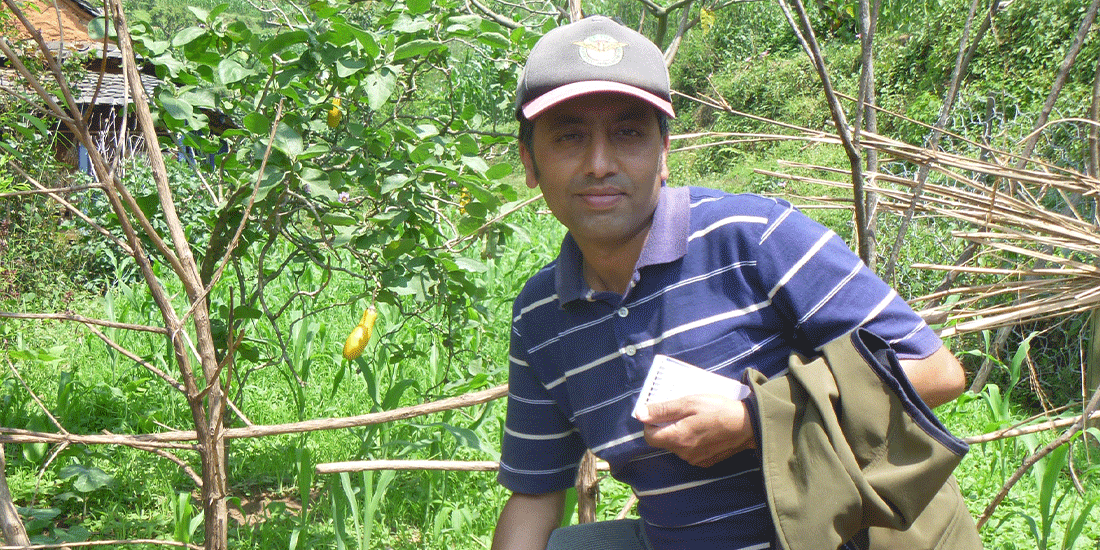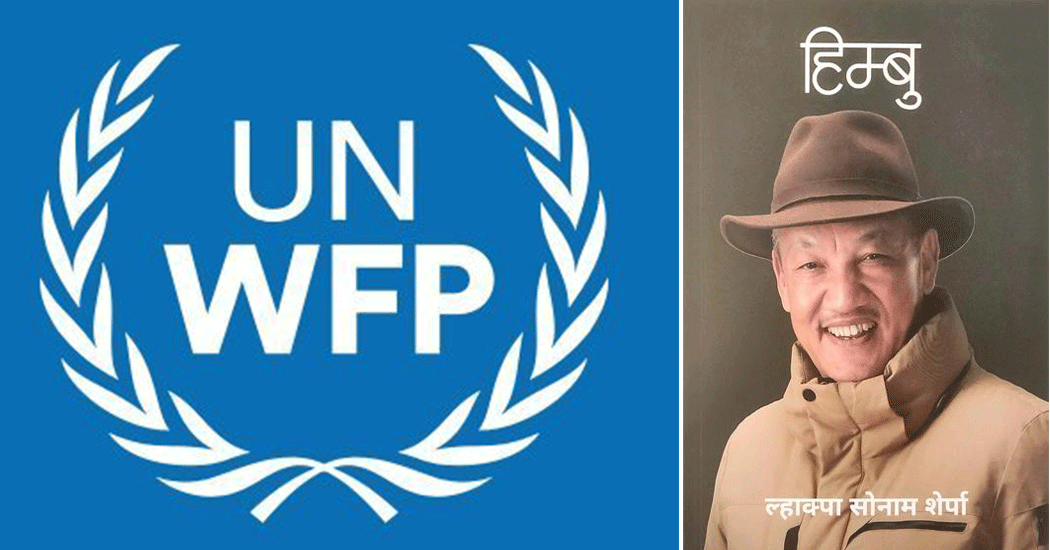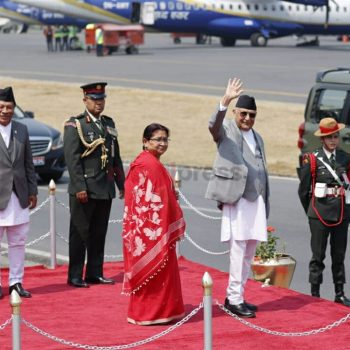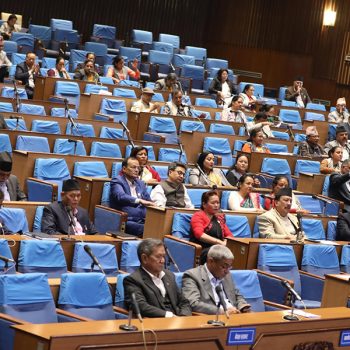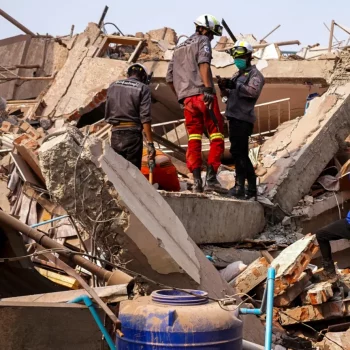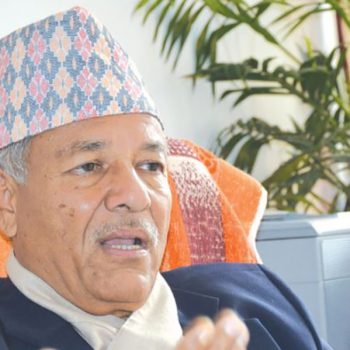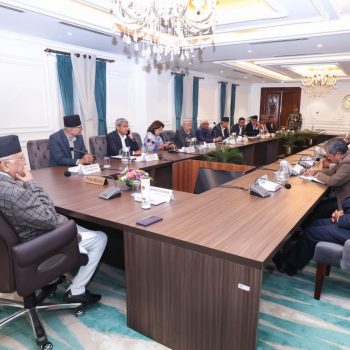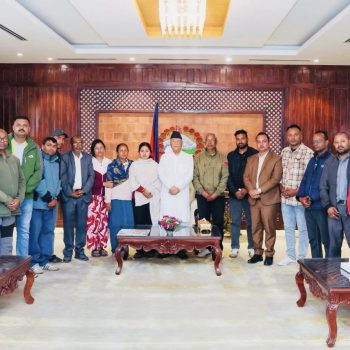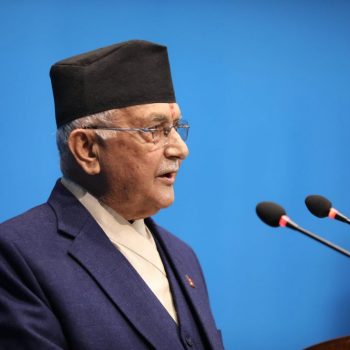‘Transformation of the Examination System is necessary’
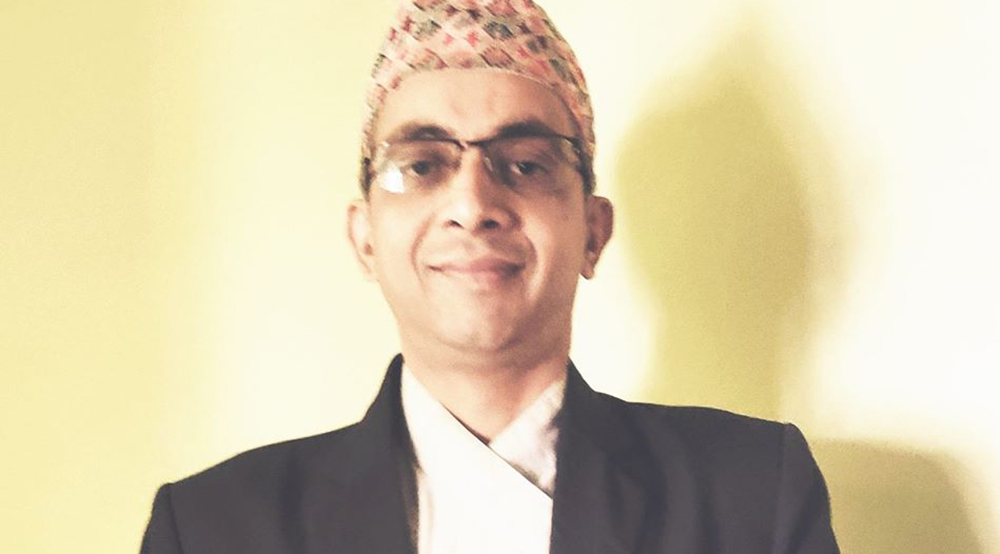
Education is one of the sectors most affected by COVID-19 pandemic. The academic session, which was supposed to start from April (Baisakh), could not start for a long time as the government suspended it towards the end of last year. Schools have been closed for a long time. Although students started studying online and through alternative media, it did not seem as effective in most areas. Under normal circumstances, the academic session that should have ended in April (Chaitra) is in a state of uncertainty.
An interview of Educationist Bal Chandra Luitel on this year’s academic session, examination system and teaching-learning, taken by Samarpan Shree of Nepal Press:
The Ministry of Education has sent a proposal to the Council of Ministers to extend the academic session till May. Even if no decision has been made, would it be appropriate to extend the academic session now?
It is unknown if this academic session could end by June (Jestha). Instead, this academic session can be linked to the 2078 academic session. If we start the new academic session from Shrawan and reduce some leaves and holidays in a number of ways, we can come back to structure within two years.
We must not compromise on teaching-learning. Learning is not limited to finishing a book. Learning should be meaningful. During this time, students can learn their subjects through their context, surroundings, home, neighbourhood, etc. They can use the internet or any other available means as a medium for learning.
If we can advance teaching-learning in a way that combines curriculum and experience, we will be able to make up for this loss. By doing so, time till June (Jestha) will not be enough. The current practise should be extended to July (Asar) and the next session should start from August (Shrawan). Then, the new academic session can be started from June (Jestha) next year and the following year in May (Baisakh). In this way, it can be gradually brought into the structure. This is a global crisis and some countries have extended it in this way.
Health experts estimate that another wave of COVID-19 virus may also spread to Nepal. In such a situation, isn’t the academic session in a state of even more uncertainty?
This is the same reason I don’t see the possibility of ending this academic session in April (Chaitra). Lockdown may be imposed again. If the airport is operated, it is likely that the wave from Europe and UK could transmit to this region too. Rumors about one case found in Nepal were also going around a little earlier. We cannot be careless when it comes to health. If such a pandemic spreads again, saving lives will be difficult. However, it is difficult for academics to be resumed normally. The Ministry of Education should also think a little differently.
On top of that, the current political environment is also affecting the education sector. I feel that the political crisis has disturbed the local levels. The political environment has been an obstacle to the smooth running of school education.
The pandemic has seen a decline in student learning due to the non-opening of schools. Is it because a concrete government plan seems to be lacking during the pandemic in terms of education?
The problem is that our education system is still in the 18th century. We have not even reached the 19th century. To say that the curriculum is everything is the consciousness of the 18th century. We are imprisoned in this.
Why we have not moved beyond the 18th century is worth pondering on. At present, our publishing apparatus, teachers, friends, the state of planning, institutions are all in a very weak state. This pandemic proved the same. The school has no plan for what to do in difficult times. We do not have the practise of planning this even in normal times.
Even though this situation has already become the new normal, we were not able to plan for education well. When looking at the government structure, we have just moved to a federal system. However, the system itself is involved in general administration. There are two types of administration; development administration and general administration. Development administration is now needed in the education and health sector in Nepal. The development administration responds according to urgent needs.
Even our laws are not formulated that way. It is also difficult for the people in the Ministry. The regulations are not readied like that. This is a situation where even law has not been formulated yet. This situation came about within three years of the formation of the new government. Our overall system is old. We only have the curriculum to teach under normal circumstances. The chances of going digital or bring the existing curriculum to digital is very less.
I put up a post on social media – An examination question in Grade 6 for Science asks about ‘the properties of metals’. In the Computer subject, questions like ‘full form of IBM’ are asked. We do not prosper by teaching this way, nor do our students become scientists or can form a point of view. After studying in this kind of education system for years, they end up leaving the country because Nepal’s education system is not up to date.
Our system has to be transformed from general administration to development administration.
Schools are still closed in many places due to COVID-19. As we are nearing the end of this academic session, schools are under pressure to conduct exams. How can the schools evaluate on the basis of internal assessment and curriculum? Is there an obligation to conduct examinations?
I don’t believe that examinations have to be taken. In the 18th century, it was believed that examinations were necessary. There is an existing belief that separate exams aren’t a must in this century. However, if you look at the situation of university examinations, there is no one capable enough to evaluate. 80% of teachers are products of Tribhuvan University, where there exists a belief that we cannot do without examinations.
Countries like Singapore, Japan and Korea are no longer worried about examinations. We, in Nepal, always worry about it. We have not been able to move forward for more than 200 years since the beginning of modern education. We did not understand that quality comes from meaningful work through the collaboration of teachers and students.
The Nepal Examination Board is now alleging that the teachers do not know how to mark students and their answers. The solution to this poor educational system is not conducting examinations. It cannot be said that conducting examinations will fix all problems.
Can the waste of this past year be considered as a consequence of our weak education system?
It cannot be said that it has been wasted. At some point, solutions will come about. COVID vaccine is coming and it may be effective. By considering 2077 as ‘Year Zero’, the next academic session can be extended and brought back to cycle.
This is not the first time this has happened. If we look at the history of the academic sessions in Tribhuvan University, academic sessions have been wasted due to various movements and its own internal weaknesses. It had taken me 9 years to complete a regular 6-year course as my years were wasted too, but TU recovered it. If we plan for 3 years in school education, we can recover from this.
What about SEE now?
The responsibility of SEE should be given to the provincial government. Even now, I have heard rumours that it will be focused on. This is unfortunate. It should be decentralized and extended to schools as much as possible. The examination of grade 12 can be taken by the centre and the federal system. Schools should be able to assess and evaluate the examination and learning process. It is not possible to build a learning-oriented schools by making it exam-centric.
The results of the SEE were made public on the basis of an internal assessment last year. It was also alleged that the school gave arbitrary numbers. What should the evaluation process be this year?
It should be handed over to the province. Schools can then be given three to four months to guide students on what basis exams will be taken. If information is given that examinations will take place after 4 months, schools can guide their students. They can take ‘assessment’ from their homes, or create home centres. Cooperation from the province to the school needs to be done on time. The teachers should also be oriented.
How should the government advance the educational process or learning?
Schools can be opened in a place where it is feasible to do so. There are different available means that we can use. If the pandemic spreads again, the internet and radio has to be used. On the other hand, the Ministry of Education should focus on the quality of learning rather than the quality of education, meaning that we have to create a suitable environment for learning in schools. In some places, we have not been able to manage teachers. Teachers should be managed in those places. The current international trend is to connect locals to the world, and there is a need for such courses in Nepal. This is the suitable way now. A new Minister has just been appointed in the Ministry and I think he is also going to make plans this way.
The current education proposal focused on strengthening community schools. However, the government was also seen encouraging private schools. Why are there two streams of education in our society?
Private school friends now need to be involved in innovation. I am not in favour of the argument that there should not be private schools. But, everyone should get the same education. Private education should not be mainstream. At present, there is an illusion that it is everything. That is not true. Private schools have to work at the local level. The number of private schools involved in innovation is small. There are a number of private schools that occupy spaces left by public schools in great chaos. This is not a good practise.
The government has no responsibility in the private sector. Another important thing is that private sector’s profit should not go into personal pockets, and such models of private school are needed. There are private schools in the United States, but the profits do not go into the pockets of individuals. It stays within the institution. If schools are opened by an individual, it is difficult for the school to last more than 25 years. The quality of private schools seems to be declining during the present generation.
Educational institutions should be run by trusts. The life span of such schools is long. In India itself, schools run by trusts for 200 years have been running with lots of self-confidence. They have provided good quality education. The government also has to pay attention here, and community schools need to be encouraged and supported.




